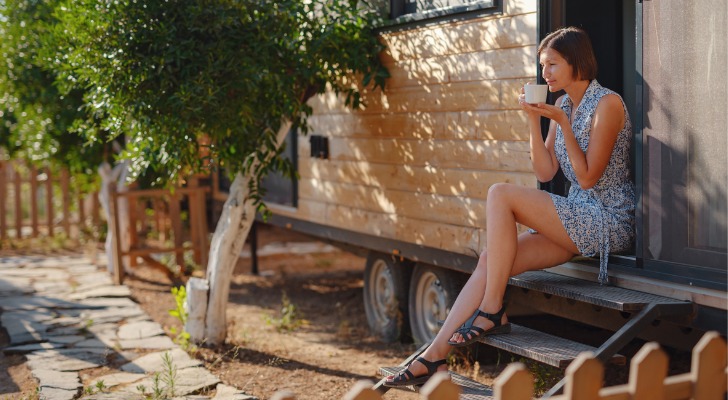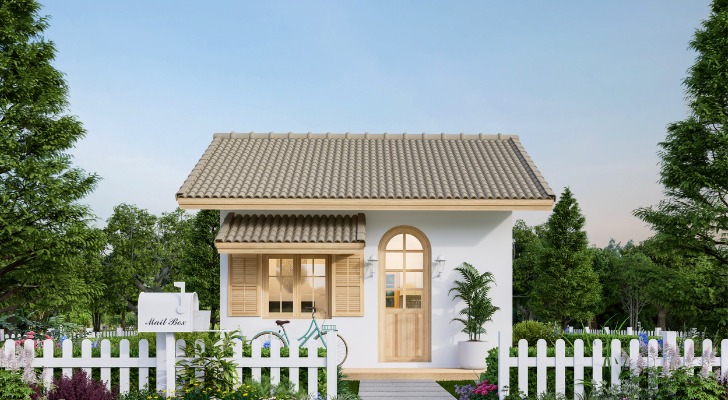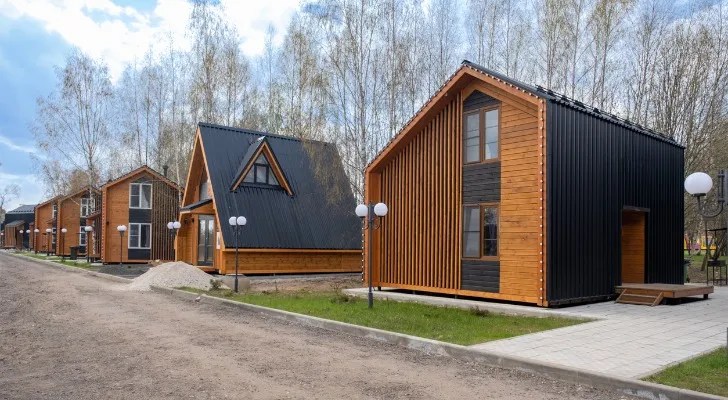Investing in real estate has historically been viewed as a safe and profitable venture. However, the shifting dynamics of the market have spurred the emergence of unconventional opportunities. Among the most intriguing of these is the tiny home investment trend. A burgeoning wave characterized by compact size and affordability, tiny home investments have piqued worldwide interest. One question still looms though — do tiny homes appreciate in value? Or perhaps rephrasing the question for our everyday investor, can your tiny home potentially become worth more than what you bought it for over a period of time? The short answer is that they can appreciate, but it’s more complicated than that.
If you’re interested in buying a tiny home, you may want to consult with a financial advisor who specializes in real estate investments.
What Is a Tiny Home?
Tiny homes are small, fully functional living spaces, typically less than 400 square feet. These miniature abodes are shrunken versions of traditional homes, designed and built to optimize every square inch. Despite their size, they offer the same comforts and functionalities as traditional homes, emphasizing efficient use of space and abetting a minimalist lifestyle.
These small living spaces became a popular alternative to traditional homes after the financial crisis in the late 2000s. Homebuyers specifically looked for affordable and sustainable spaces, as well as eco-friendly structures that met their environmental needs.
Types of Tiny Homes

Every single feature in a tiny home real estate project is meticulously planned. Architects craft these homes to squeeze utility out of every inch. This might involve designing multi-purpose furniture, making use of vertical space or creating open floor plans suggestive of spaciousness.
Incorporating these ingenious solutions is critical to managing space and ensuring the home remains uncluttered despite its size. Even within their compact confines, tiny homes include essential amenities like a kitchen, bathroom, sleeping area and living space. Some feature luxury compact appliances, smart home technology and high-end finishes, ensuring residents enjoy traditional comforts.
One common type of tiny home is the “Tiny House on Wheels” (THOW). These are typically constructed on trailers, allowing them to be mobile and towed to different locations. THOWs come in various sizes, with some models offering all the amenities of a traditional house, including a kitchen, bathroom and sleeping areas. These tiny homes can be used as vacation homes or even full-time residences for those with a nomadic lifestyle.
Another common type of tiny home is the “Accessory Dwelling Unit” (ADU). These are smaller, secondary dwellings typically located on the same property as a primary residence. ADUs can be used to house family members, guests and generate rental income.
Average Costs of a Tiny Home
Constructing a tiny home could set you back anywhere between $10,000 to $180,000. Pricing will vary based on size, materials and custom features. For example, a simple tiny home design will be more affordable than one equipped with high-end finishes and smart home technology.
You will also need to take note of ongoing costs after the tiny home is built. These can include maintenance, utilities, insurance and potentially land rental fees.
Generally, tiny home costs are lower than those associated with traditional homes, making them a popular choice for first-time homebuyers and and retirees.
Do Tiny Homes Appreciate in Value?
Appreciation, in simple terms, refers to an increase in the value of a property over time. Your tiny home can appreciate in value over time. But it will depend on several factors, including market conditions, the location of the property and home improvements.
As an example, a tiny home located in a popular neighborhood with high demand is more likely to appreciate in value when compared with another home in a less-known, remote area.
Growing trends in minimalism and sustainable living have driven up the demand for tiny homes. And, consequently, this can also help homeowners sell their tiny homes for a profit.
Additionally, tiny homes offer significant savings on operating costs, which could make them attractive for prospective buyers. These homes tend to be energy-efficient and require less maintenance, which can translate to lower utility bills and upkeep expenses for buyers.
Finally, many tiny homes often utilize innovative, space-saving designs that appeal to environmentally-conscious buyers who are seeking a smaller ecological footprint. And this can also help a tiny home appreciate in value.
Bottom Line

Tiny homes offer an affordable entry into real estate investment, but their potential for appreciation is contingent on several factors. As such, they are best considered as part of a diversified investment strategy. Whether you’re interested in a more minimal, sustainable lifestyle or seeking an additional income stream via rental, a tiny home can serve your needs. However, before taking the plunge, understand your financial intentions, be aware of your risk tolerance and consider consulting real estate professionals and financial advisors.
Tips for Investing in Real Estate
- Investing in real estate can be a very lucrative investment but it isn’t without its unique challenges. A financial advisor can help you find the right investments that will help you reach your long-term goals. Finding a financial advisor doesn’t have to be hard. SmartAsset’s free tool matches you with up to three vetted financial advisors who serve your area, and you can have a free introductory call with your advisor matches to decide which one you feel is right for you. If you’re ready to find an advisor who can help you achieve your financial goals, get started now.
- Before deciding if a tiny home is the right option for you, make sure you understand how much house you can afford so you know what options should exist.
Photo credit: ©iStock.com/Dina Damotseva, ©iStock.com/Santiaga, ©iStock.com/runna10
